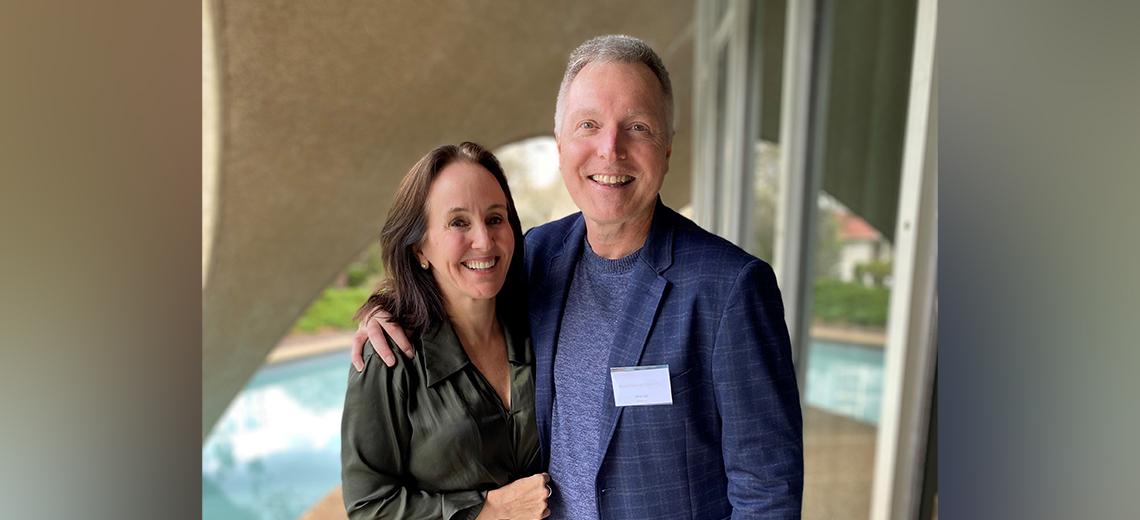
3 minute read
On Friday 6 October, The Australian National University (ANU) College of Business and Economics (CBE) hosted a workshop on early childhood development for policymakers.
Organised by the ANU Research School of Economics (RSE) and presented by the CBE John Mitchell Economics of Poverty Lab, the one-day symposium allowed attendees to hear first-hand from two of the most prominent voices in the study of early childhood development: Professor John A. List and Dr Dana Suskind, who shared the latest insights on their research.
The early years of a child’s life are critical for brain development. This is both an evidence-based fact and the core message of what John and Dana discussed with the audience in the ‘Educating a Better World’ workshop.
Dana is the founder and co-director of the TMW Center for Early Learning + Public Health at the University of Chicago, which supports parents of all economic levels, ensuring healthy brain development for their kids.
As a pioneer in her field, she has written several critically acclaimed books, including Thirty Million Words (2015) and Parent Nation (2022)– a New York Times Best Seller.
Her presentation focused on the use of emerging technologies to inform, measure and enhance early-childhood development. Using innovative tools, such as wearables, artificial intelligence (AI) and adaptive technology, Dana believes her and her team are achieving new ways to unlock cognitive potential among children:
AI is expected to advance our understanding of human development, allowing us to treat and prevent a variety of cognitive delays and disparities.
For his part, John, a Distinguished Professor in Economics at both the University of Chicago and ANU, has been using the world as his lab since the early 1990s. As a behavioural economist, he has conducted hundreds of field experiments to resolve society’s most pressing economic challenges.
In parallel to his successful academic life, John is also the Chief Economist in Walmart and author of best-selling books The Voltage Effect (2022) and The Why Axis (2013), which attest to his invaluable contributions to the field of economic theory.
In his lecture, John shared some of his previous work with The Chicago Heights Early Childhood Center (CHECC), where, between 2010 and 2014, he tested various education programs, including a parent academy that remunerated parents to attend workshops and learn how to teach their own kids.
With his team, John is currently gauging post-pandemic learning loss in children who participated in the CHECC programs a decade ago. John suggests parent education can work as a shield to prevent future negative shocks, such as pandemics:
Investing in parents at an early age can protect children against losses in other inputs later in life. We would have never been able to detect this if it had not been for COVID-19.
Drawing on their shared expertise, John and Dana are trying to scale the findings of their experiments, making ideas that have taken hold in small groups do the same in much larger ones.
“Most public policy does not have an impact when scaled, but science is still the key for good policymaking. We need a public health approach to education,” Dana emphasised.
With their peers, John and Dana are on a mission to make their discoveries accessible to parents in every corner of the world.
“Healthy brain-development guides are not given in the hospital when a child is born, but our community is trying to develop enough science to give everybody that plan,” John said.
The workshop also included two policy panels with academics, industry experts, and policymakers, who convened to discuss the synergistic relationship between policymaking and science, as well as the ways in which field experiments can inform education policy.
Other notable speakers in attendance included the Hon Dr. Andrew Leigh MP, ANU Professor Emily Lancsar, and Professor Bob Slonim from UTS.
“Hosting these high-level discussions at ANU reaffirms our role as a leading institution that connects social science with policy. I have no doubt the discussions and relationships forged in this forum will inspire the future of education policy in Australia,” said Professor Rabee Tourky, Director of RSE.
The College is always keen to explore research collaborations with the public and private sector and to reconnect with alumni. Please get in touch if you would like to know more about partnering with us.
